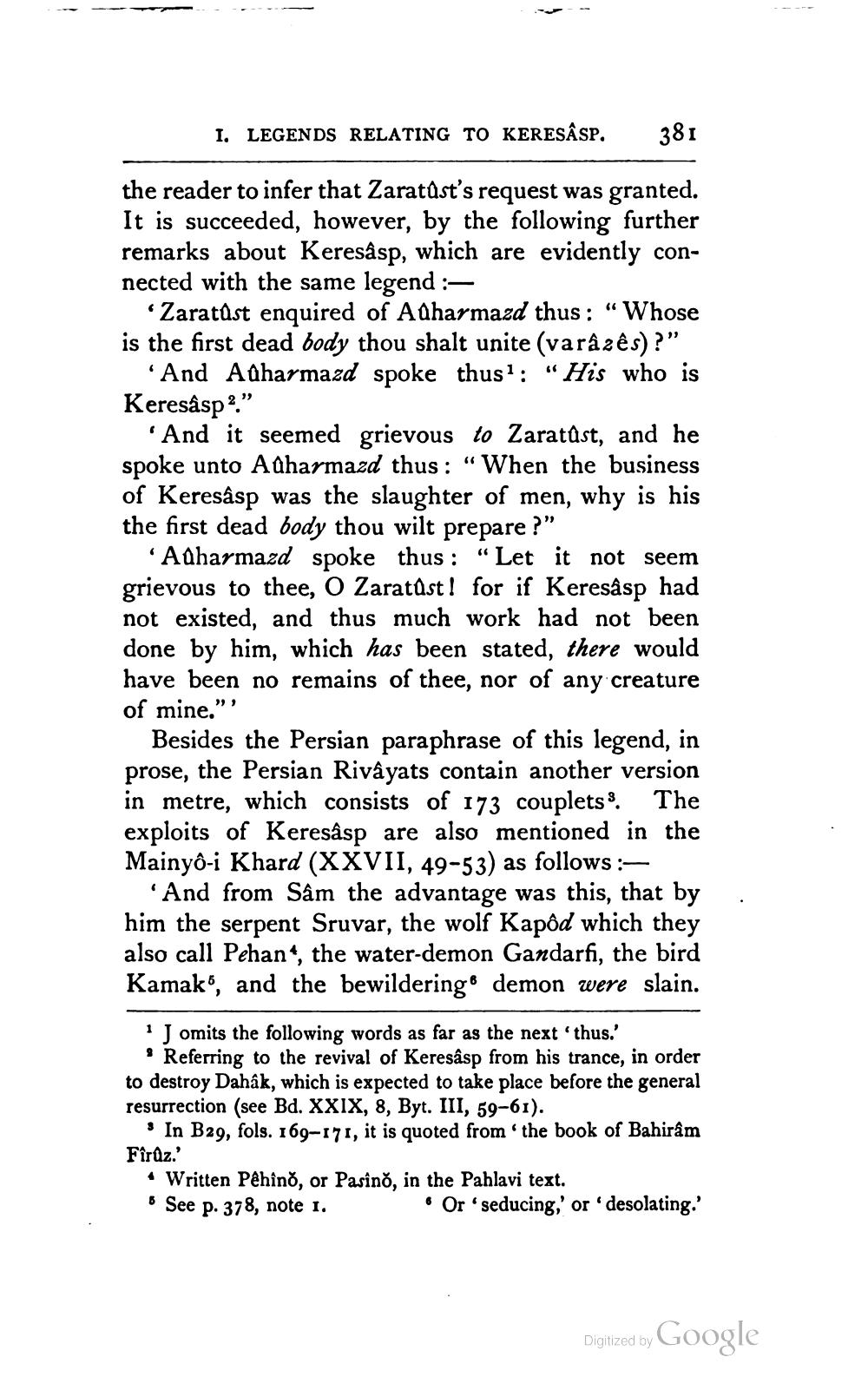________________
I. LEGENDS RELATING TO KERESÂSP.
381
the reader to infer that Zaratūst's request was granted. It is succeeded, however, by the following further remarks about Keresâsp, which are evidently connected with the same legend :
Zaratūst enquired of Adharmazd thus: “Whose is the first dead body thou shalt unite (varázês)?”.
And Adharmazd spoke thus: “His who is Keresâsp2"
And it seemed grievous to Zaratůst, and he spoke unto Adharmazd thus : "When the business of Keresâsp was the slaughter of men, why is his the first dead body thou wilt prepare ?"
"Adharmazd spoke thus: “Let it not seem grievous to thee, O Zaratūst! for if Keresâsp had not existed, and thus much work had not been done by him, which has been stated, there would have been no remains of thee, nor of any creature of mine."
Besides the Persian paraphrase of this legend, in prose, the Persian Rivâyats contain another version in metre, which consists of 173 couplets. The exploits of Keresâsp are also mentioned in the Mainyô-i Khard (XXVII, 49-53) as follows:
And from Sâm the advantage was this, that by him the serpent Sruvar, the wolf Kapôd which they also call Pehan", the water-demon Gandarfi, the bird Kamak", and the bewilderinge demon were slain.
1 omits the following words as far as the next 'thus.
Referring to the revival of Keresâsp from his trance, in order to destroy Dahák, which is expected to take place before the general resurrection (see Bd. XXIX, 8, Byt. III, 59-61).
* In B29, fols. 169-171, it is quoted from the book of Bahirâm Firûz.
Written Pêhino, or Pasîno, in the Pahlavi text. • See p. 378, note 1.
. Or 'seducing,' or 'desolating.'
Digitized by Google




